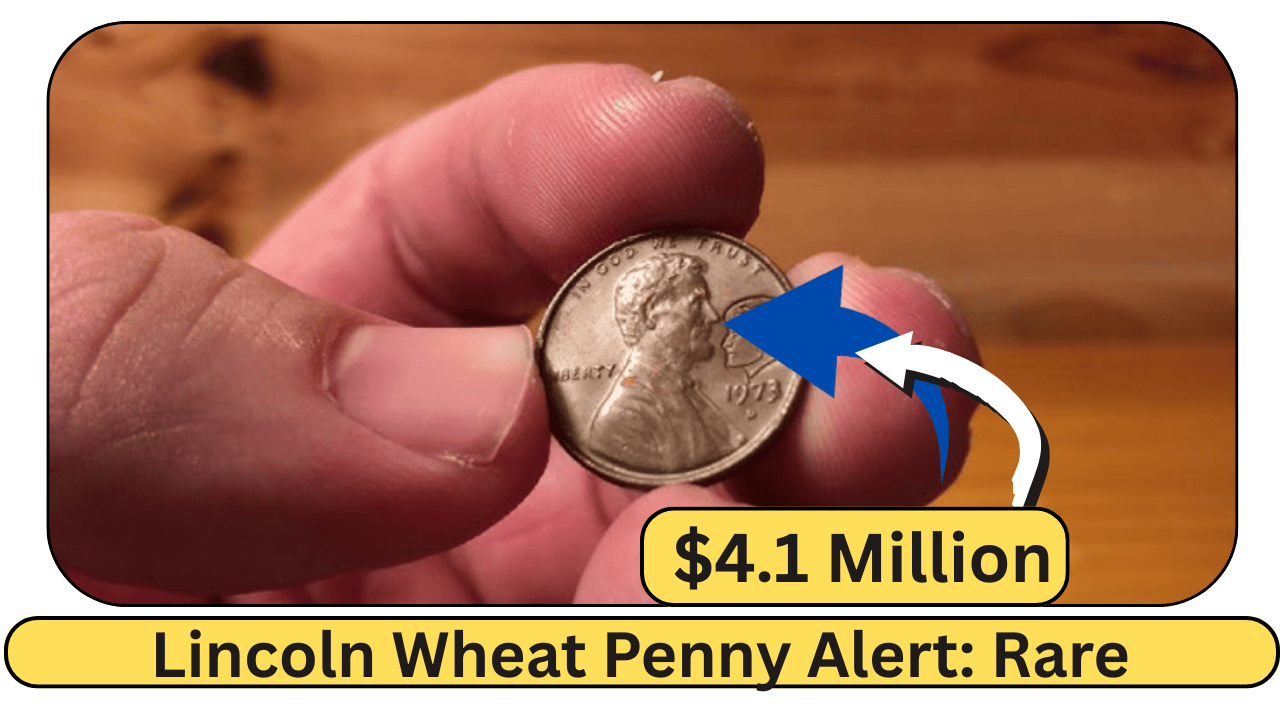What if a penny in your pocket was worth $4.1 million? The Lincoln Wheat Penny, minted from 1909 to 1958, is sparking a treasure hunt across America in 2025. With Abraham Lincoln on the front and wheat stalks on the back, these coins are common, but a few rare ones, like the 1943 copper penny, are worth a fortune. X posts are buzzing about a kid finding a $10,000 penny in a candy store this year! The $4.1 million claim ties to a super-rare error coin, and collectors are checking every penny. Here’s why this coin is so special and how to spot a jackpot in your change.
A Penny Packed with History
The Lincoln Wheat Penny, designed by Victor David Brenner, hit pockets in 1909 to honor Lincoln’s 100th birthday. It was the first U.S. coin to show a real person, with wheat stalks symbolizing prosperity. Minted in Philadelphia (no mint mark), Denver (D), and San Francisco (S), billions were made. In 1943, to save copper for World War II, pennies were made of zinc-coated steel, but a few copper blanks were accidentally struck, creating the ultra-rare 1943 copper penny. One sold for $1.7 million in 2010, with top estimates now reaching $4.1 million!
Why This Penny Is Worth Millions
The $4.1 million price likely points to the 1943 copper penny, one of only 15–20 known to exist. This error happened when copper blanks were mistakenly used during the steel penny era. Other valuable Wheat Pennies include the 1909-S VDB ($500–$100,000), with the designer’s initials, the 1955 Doubled Die ($1,000–$33,000), with blurry text, and the 1922 No D ($500–$20,000), missing its mint mark. Condition matters—shiny, unworn coins (MS65 or higher) fetch the most. X users warn against fake $102 million claims, but $4.1 million is a real possibility!
Top Wheat Pennies to Hunt For
Here’s what to check in your change:
- 1943 Copper Penny: Copper, not steel, worth $10,000–$4.1 million.
- 1909-S VDB: Has “VDB” initials, worth $500–$100,000.
- 1955 Doubled Die: Blurry date or “LIBERTY,” worth $1,000–$33,000.
- 1922 No D: No “D” mint mark, worth $500–$20,000.
| Feature | Common Wheat Penny | Rare 1943 Copper Penny |
|---|---|---|
| Year | 1909–1958 | 1943 |
| Material | Copper or steel (1943) | Copper (error) |
| Mint Mark | None, D, or S | None, D, or S (rare) |
| Value | $0.01–$1 | $10,000–$4.1M+ |
Where to Find These Hidden Treasures
Wheat Pennies are still out there—in change from stores, vending machines, or old coin jars. A 2025 X post shared a $5,000 penny found in a coffee shop tip jar! Check family collections, flea markets, or bank rolls, where older pennies often mix in. Many were saved as keepsakes, so your grandparents’ stash might hold a gem. The 1943 copper penny is the ultimate prize, but even a 1955 Doubled Die worth $1,500 is a big win. With millions in circulation, every penny is worth a quick look.
How to Spot a Rare Penny
If you find a 1943 penny, here’s how to check for the big one:
- Magnet test: Copper doesn’t stick; steel does.
- Color: Copper is bronze, not silver-gray like steel.
- Weight: Copper is 3.11 grams, steel 2.7 grams.
- Date: Look for “1943,” “1909-S VDB,” or “1955.”
- Errors: Use a magnifying glass for doubled text or missing mint marks.
Don’t clean it—cleaning ruins value. Store it in a plastic coin sleeve, compare it to images on PCGS or NGC sites, and take it to a coin shop or grading service for authentication. Auction houses like Heritage Auctions can help you sell.
Join the 2025 Penny Hunt
The $4.1 million 1943 copper penny is a collector’s dream, with only a handful known. While $102 million claims are myths, real sales like $1.7 million in 2010 and $840,000 in 2021 show these pennies can change lives. With Wheat Pennies still in circulation, your change could hold a treasure. Grab a magnifying glass, check for 1943 pennies or errors like blurry text, and look for shiny coins. Coin collecting is a fun way to touch history, and with America’s 250th anniversary in 2026, interest is soaring. Check your change today—you might find a penny worth a fortune!

